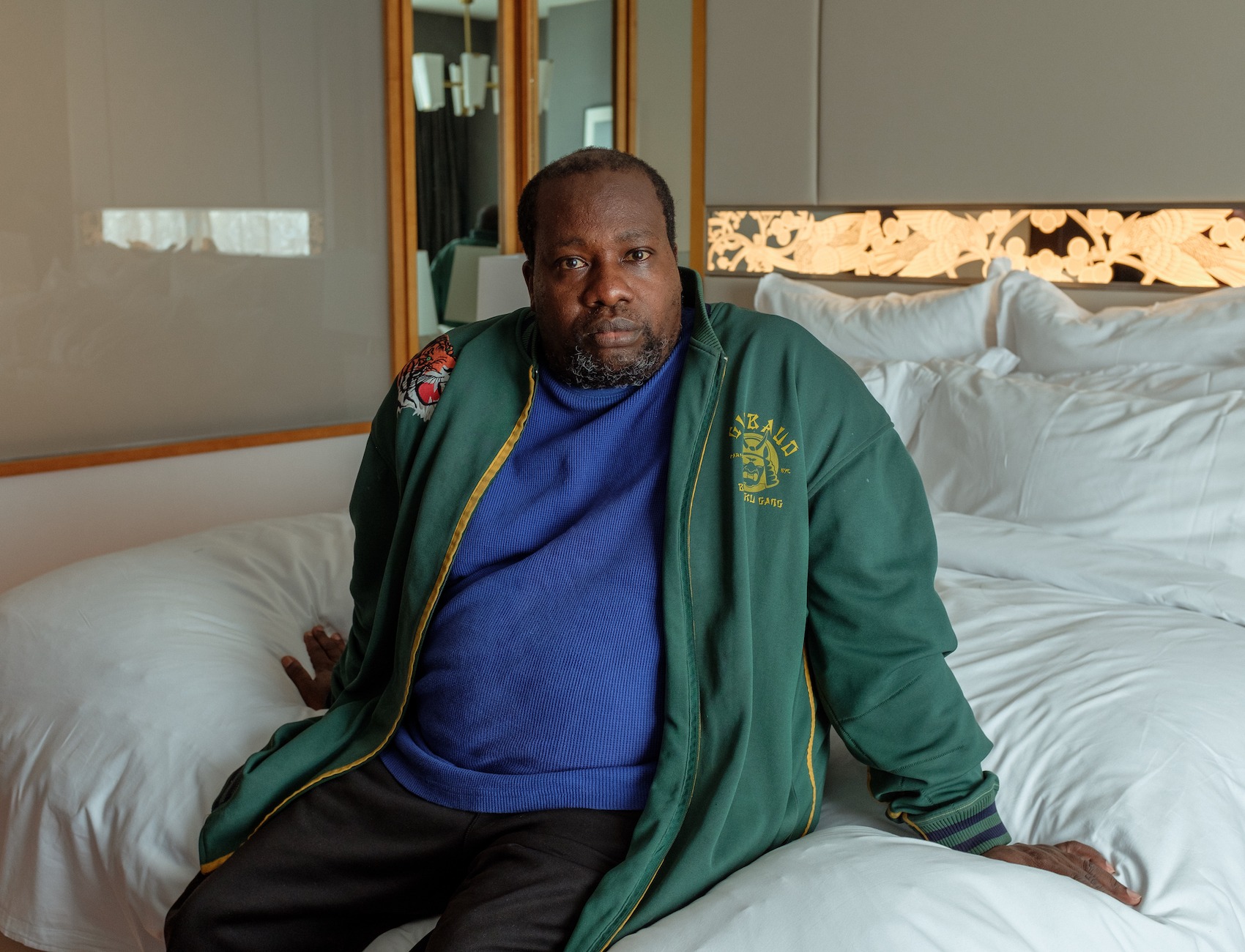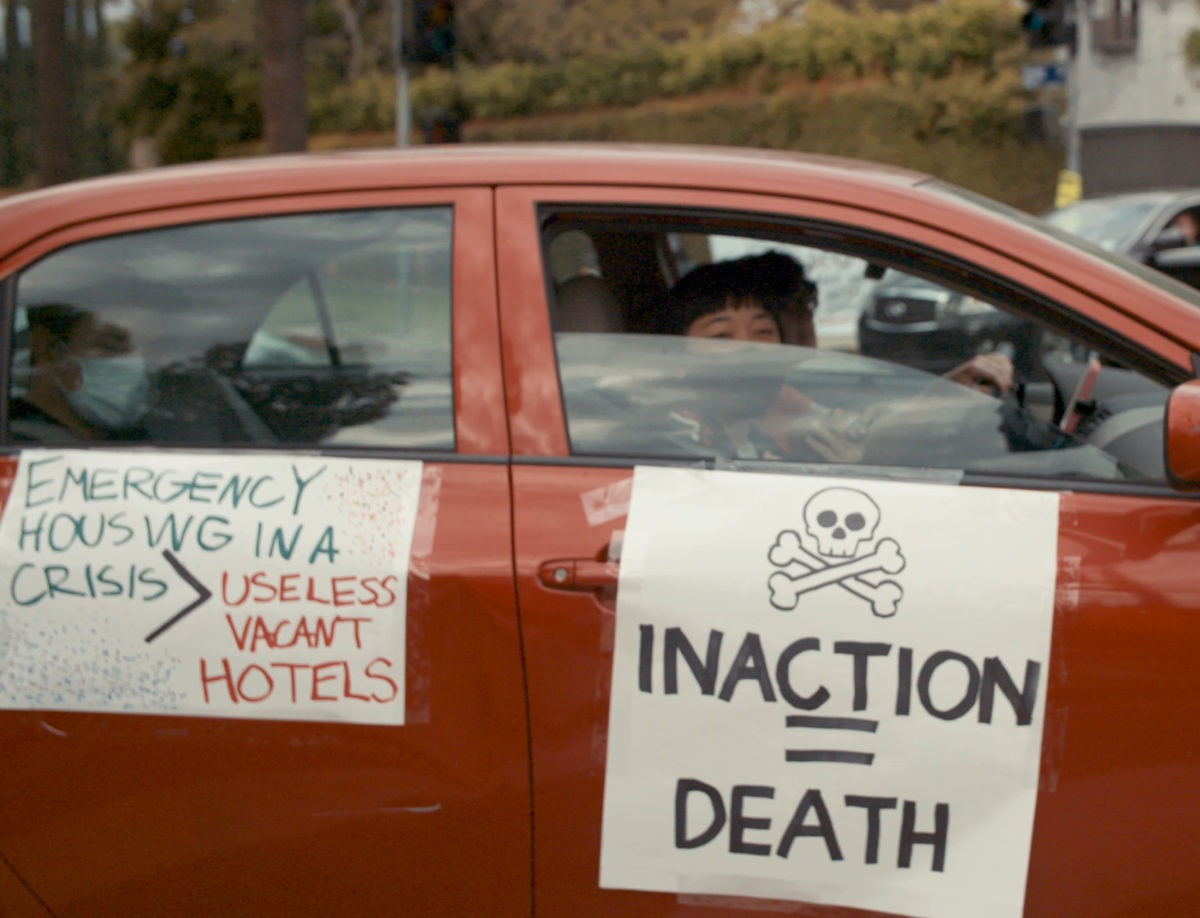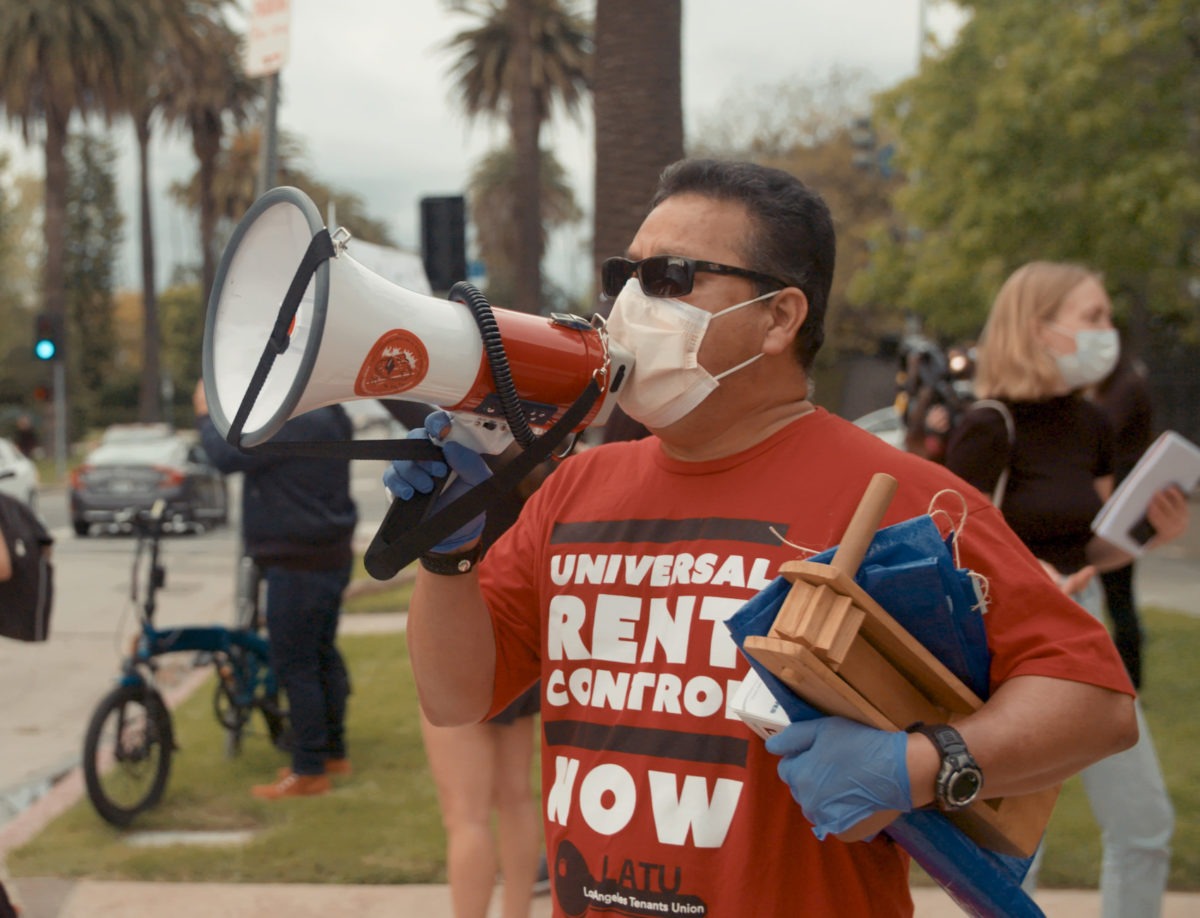The Battle to Convert California Hotels into Housing Has Begun
Elected officials need to stop making excuses for not getting unhoused people into hotel rooms.

This piece is a commentary, part of The Appeal’s collection of opinion and analysis.
“Two miles from here [is] where Skid Row is,” Theo Henderson said from a hotel room overlooking downtown Los Angeles. “I’m sitting looking out across from the place where LA Live is.”
He was speaking on a Zoom call with other unhoused California residents, from Southern California to Sacramento and the Bay Area. They were announcing the launch of the No Vacancy! California campaign, a new effort by unhoused people and organizers who are demanding that the state commandeer its many vacant hotel rooms and convert them into housing for the poor in this historic moment of interlocking crises.
On the call, Henderson, who produces a weekly podcast about surviving on the streets, explained that the building he spent the night in received millions in subsidies from the city while thousands of people like him have become homeless.
The point of the teleconference was to demonstrate that putting people in hotels isn’t that difficult and will benefit all of us, because we’re only as healthy as our most vulnerable neighbors. The night before the call, unhoused people like Theo checked into hotel rooms, with access to clean beds, running water, and other basic amenities that are nearly impossible to find if you’re homeless in a major American city.
In early April, Governor Gavin Newsom announced the launch of Project Roomkey, a statewide initiative to put precariously housed and homeless people into hotels and motels. Some mayors, like London Breed of San Francisco, have been resistant, favoring unsafe shelters. Others, like LA Mayor Eric Garcetti, were initially supportive of the idea, but he and others have dragged their feet and, in some cases, backpedaled entirely, claiming it’s just not that easy to put people into hotels. The plan only accounts for 15,000 people to be housed throughout the state. To put that in perspective, an estimated 100,000 people experience homelessness in LA County on an annual basis, so Project Roomkey, even if perfectly implemented, would barely cover 10 percent of the officially counted population, a paltry effort for one of the world’s largest economies.
To get LA officials’ attention, an organizing effort called People’s City Council has sprouted up with ramped up protests in the past several weeks. They are asking Garcetti and city council members—who keep cancelling crucial public meetings as City Hall scandals keep leaking out—to enact stronger tenant protections, cancel rent, and ultimately turn hotels into permanent social housing. Tenant movements running up and down the West Coast are also seizing vacant private and state-owned homes in places like Oakland and LA. All of these actions are driven by the idea that it’s criminal to leave housing empty, especially during a pandemic.

Homelessness is a massive, avoidable health crisis that has gradually been normalized in California. It slashes life expectancy rates by decades. It disproportionately affects and kills Black people, just like COVID-19. In many areas, Black people are several times more likely to contract the virus because of how capitalism punishes minorities. We see this cruel disparity play out in the disproportionate rates of Black COVID-19 cases, higher rates or respiratory issues in Black and brown communities, and the lack of health care for Black women in America being magnified by the moment.
Organizers have been making this case about vacancy long before the pandemic. But now that COVID-19 has ground the tourism industry to a halt, unhoused communities and organizers across California have jumped on the opportunity to make a renewed case for converting hotels into various forms of housing.
After all, many of these hotels have been significantly underwritten by the public trust. In LA, a 2018 audit showed that the city had callously doled out $1 billion to hotel developers in the previous 13 years as LA became increasingly uninhabitable. The past decade in LA has seen homelessness surge as evictions exploded, wages stagnated, and affordable housing construction slowed while subsidies to developers hit absurd highs. Developers received so many public resources that you could argue that these mega-hotels are already public housing. Meanwhile, homelessnness has nearly doubled since Garcetti was inaugurated in 2013.
After the statewide Zoom call, the No Vacancy organizers hit the mostly empty streets to target hotels around the state for possible takeover. Organizers and the unhoused unfurled banners demanding the immediate commandeering of these mostly empty hotels. Their demands include protecting workers who would help run these newly adapted structures, as well as protecting the property rights of the unhoused, who are routinely subjected to sweeps where all of their possessions could be destroyed in an instant. Legally, things may be swinging back toward favoring the unhoused, following a recent ruling protecting some of their rights to personal property, but criminalization of poverty is still expressed in so many other ways around the region, whether it’s legal or not.
In LA, organizers stopped by the Inn at Playa Del Rey, a hotel they recently discovered that Garcetti co-owns as part of a substantial real estate portfolio. That the mayor of the city with arguably the largest affordability crisis in the country has a stake in a hotel seems unsurprising when you consider that over half of its councilmembers are also landlords. A Biden surrogate and close friend of Bloomberg’s, Garcetti has been taking money from developers and helping greenlight massive gentrification projects for his entire tenure. When organizers arrived at the Inn, it was closed for the pandemic.
But Garcetti heard the calls. Later that evening on his daily video address, Garcetti acknowledged the calls for commandeering hotels: “In terms of commandeering, I would just say that, look, we still have to pay for things,” he said. “And so we have to make sure we have the money from the state and the federal government through our county for these hotel and motel rooms. But I’ve put such a priority on this that we’ve put kind of a czar from the city side in charge of this in terms of calling more hotels and calling more motels, offering not just to have hotel rooms now, but to potentially purchase those hotels and motels, so people after this is done people don’t hit the streets again.”

In his typically diffuse fashion, Garcetti showed that, though he hears organizers, he still isn’t listening to the message—that this is life or death, and every day that we wait is tantamount to delivering death sentences—and is unclear if he can follow through on any truly difficult project. He has failed to put a dent in the housing and homelessness catastrophes in two decades of his political life. So what’s his excuse for the foot-dragging?
“We can’t get too many rooms too quickly,” Garcetti insisted, blithely ignoring the fact that if we don’t act quickly, we are handing out death sentences to tens of thousands of systemically impoverished people.
You can judge any society by how it treats its poor. Despite their exceptionalist veneer, LA and California at large have been failing as a society for a long, long time. Pro-development politicians like Garcetti are a big reason why. You can’t address poverty when you’re beholden to billionaire developers. This has always been the friction, and it seems like something will finally have to give.
On Sunday, people from the People’s City Council—in cars stretching down several blocks, with dozens more on foot, and a few on bikes—showed up to protest outside the mayor’s mansion. They called for true tenant protections and immediate housing of the unhoused. One of their demands took it a step further: They want hotels to be converted into permanent social housing. Two peaceful protestors were detained by LAPD officers—many of whom were ignoring the mayor’s mask orders—for using amplified sound (and several more cited for honking, the legality of which is still up in the air), two days after right-wing protestors protested without police intervention in nearby Huntington Beach. While Huntington Beach has a separate police department, this asymmetrical response reflects a long regional history of police hostility toward the left.
Across town, Garcetti delivered his annual State of the City Address, announcing furloughs of city employees while invoking Franklin Delano Roosevelt. As the LAPD manhandled organizers, the mayor audaciously shed crocodile tears about how resilient Los Angeles is at its core and claimed, “This nation has the resources to fund a real recovery.”
As the mayor continues talking and talking his way through the first month of this new crisis, the calls for addressing the fundamental flaws of how we collectively exist are only getting louder.
Jonny Coleman is an organizer with NOlympics LA and DSA-LA.
